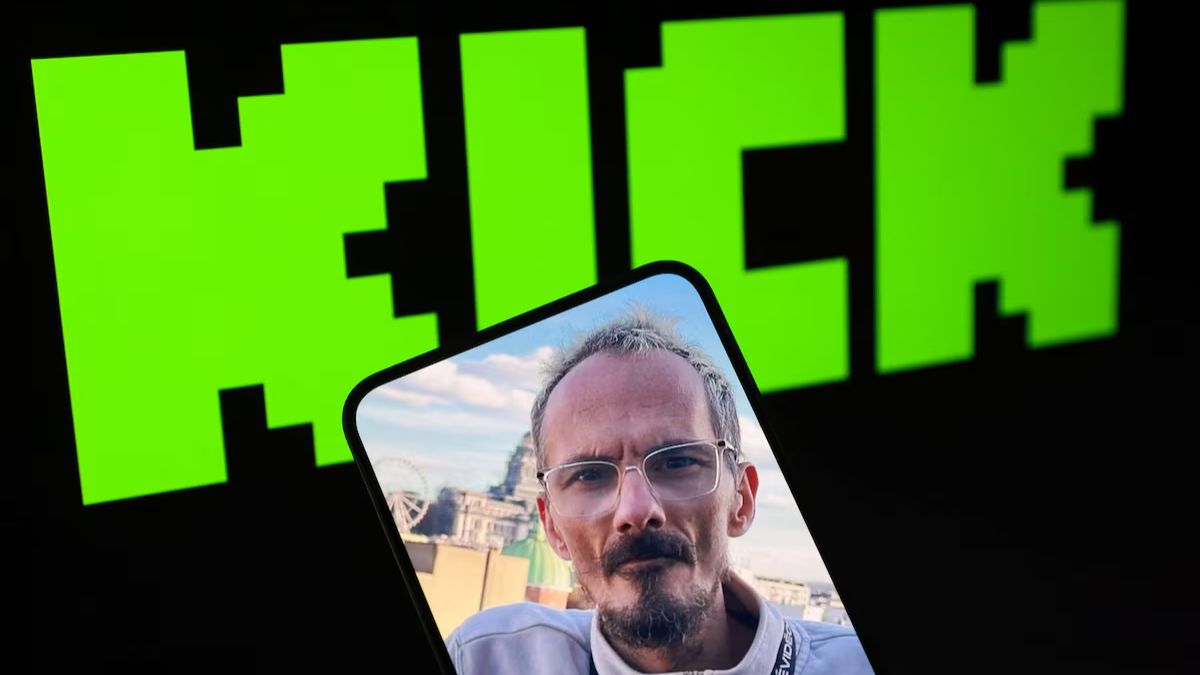French authorities have launched an investigation into Kick, the Australian live-streaming platform, after the shocking death of influencer Raphael Graven, better known online as Jean Pormanove.
Graven’s final live-stream, described as “ten days and nights of torture” challenge, has raised disturbing questions about the platform’s role in allowing such content to remain online. Reports suggest he had long been subjected to violence and humiliation in videos broadcast to his followers.
According to the Guardian, France is planning to sue Kick for alleged negligence, a government minister has said. If the company is found in violation of rules, it could face fines of up to $49 million, a serious blow to the second-largest live-streaming platform in the world.
What is Kick?
Kick is a live-streaming platform co-founded by Australian crypto casino billionaire Edward Craven, where users can broadcast live videos while audiences interact in real time through comments and donations.
The platform, launched in late 2022 with funding from the team behind the gambling site Stake.com, positioned itself as a challenger to Amazon-owned Twitch by offering streamers fewer restrictions and much lower platform fees.
Unlike its rivals, Kick allows creators to keep 95 per cent of their revenue from ads and viewer donations, and it also pays top streamers to go live more frequently.
But while this model helped the site grow rapidly, it has also given Kick a reputation for being home to gambling streams, violent content, and sexually suggestive material, raising concerns over what kind of audience it was attracting.
Why is the Kick under scrutiny now?
Kick has come under intense spotlight following the death of French influencer Jean Pormanove, aka Raphaël Graven.
Earlier this month, Graven died after what officials described as a “ten days and nights of torture” livestream challenge with fellow creators, Naruto and Safine, on the platform. French media reported that he had already endured months of violence, humiliation, and extreme challenges during his broadcasts.
Editor’s Picks
According to BFMTV, the ordeal involved “extreme” physical violence, sleep deprivation, and even the ingestion of toxic substances. The 46-year-old was found unresponsive by a co-streamer after viewers raised the alarm. The stream had been running for nearly 280 hours.
🚨🇫🇷 ALERTE INFO | Le streameur Raphaël Graven, alias Jean Pormanove, est mort dans son sommeil alors qu’il était en direct. pic.twitter.com/3n3u6Ex1SD
— Impact (@ImpactMediaFR) August 18, 2025
Initial reports suggested foul play, but an autopsy later confirmed Graven had not died due to trauma or third-party intervention. In a BBC report, authorities revealed that Graven had previously told detectives he was not a victim of violence, insisting the stunts were staged to “create a buzz” and earn money.
The case has sparked national outrage, with France’s Minister for Digital Affairs and AI, Clara Chappaz, calling Graven’s death an “absolute horror”. She condemned both the abuse he suffered and Kick’s failure to step in. She vowed to end what she described as the “digital Wild West”.
On Tuesday, Paris prosecutor Laure Beccuau confirmed a formal investigation into whether Kick knowingly broadcast “videos of deliberate attacks on personal integrity.”
In response, Kick announced it had banned all co-streamers involved in the ordeal, pledged cooperation with authorities, and said it was reviewing its French content. “Our priority is to protect creators and ensure a safer environment on Kick,” the platform said on X.
Australia opens up an investigation too
While France may have limited authority over Kick, which is headquartered in Australia, the case has also caught the eye of Australia’s eSafety Commissioner. The office confirmed that an active investigation is underway and even warned of steep penalties, according to The Sydney Morning Herald.
“This is a tragic case where someone has lost their life, and underscores how the creation of more extreme content, in this case involving actual violence, can have devastating, real-world consequences,” a spokesperson for the commissioner said.
Under Australian law, platforms must take responsibility for shielding users from harmful or criminal material and are expected to enforce their own terms of service.
A spokesperson told The Guardian, “eSafety will use the full range of our enforcement powers as appropriate where there is non-compliance, which can include seeking penalties of up to AUD $49.5 million.” They added, “Platforms like Kick need to be doing more to enforce their own terms of use and minimise harmful content and conduct in streams to protect all users of the service.”
Also read: Why has Australia added YouTube to social media ban for teens?
What’s next for Kick?
So where does Kick go from here? The truth is, it’s not very clear. The platform has built much of its brand on being more relaxed about content rules compared to its main rival, Twitch.
Mark R Johnson, a Lecturer in Digital Cultures at the University of Sydney, notes that Kick is unlikely to tighten its moderation policies unless pushed by regulators. As he explained in The Conversation, the site currently has only basic safeguards, such as pop-ups asking viewers to confirm they are over 18 when entering gambling streams.
Government pressure could force some changes. Still, enforcing regulations is tricky, Johnson notes, as countries often threaten to block access to certain websites, but these measures are easy to bypass with a virtual private network (VPN).
Ultimately, the fallout may depend on how much public and political attention this case draws. Sometimes, tragic incidents such as mass shootings or online violence spark bigger cultural and legal shifts. Whether this tragedy will be a turning point for Kick and similar platforms, though, is still uncertain.
With input from agencies
End of Article

)

